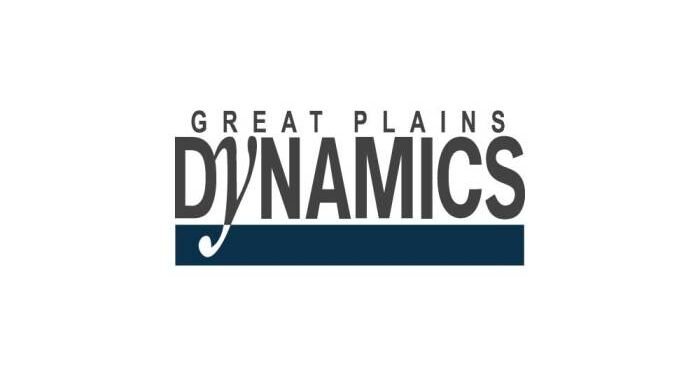As great plains dynamics takes center stage, this opening passage beckons readers with casual formal language style into a world crafted with good knowledge, ensuring a reading experience that is both absorbing and distinctly original.
Delving into the history, features, and applications of Great Plains Dynamics, this overview sets the stage for an insightful exploration of this powerful software.
Overview of Great Plains Dynamics
Great Plains Dynamics, now known as Microsoft Dynamics GP, is a comprehensive business management solution developed by Microsoft. Originally created by Great Plains Software, the software was later acquired by Microsoft in 2000. One of the key features of Great Plains Dynamics is its ability to streamline financial, human resources, and supply chain management processes.
It offers modules for accounting, inventory management, sales, and reporting, making it a versatile solution for businesses of all sizes.
Key Features and Functionalities
- Advanced financial management capabilities including general ledger, accounts payable/receivable, and fixed assets management.
- Inventory control and tracking to optimize stock levels and reduce carrying costs.
- Sales and purchasing modules for managing customer orders, vendor transactions, and procurement processes.
- Robust reporting and analytics tools for gaining insights into business performance and trends.
Industries that Use Great Plains Dynamics
- Manufacturing companies benefit from the inventory management and production planning capabilities of Great Plains Dynamics.
- Retail businesses utilize the sales and purchasing modules to track customer orders and manage vendor transactions efficiently.
- Professional services firms leverage the financial management features to streamline billing and invoicing processes.
Implementation of Great Plains Dynamics

Implementing Great Plains Dynamics in a company can be a complex process, but with the right approach, it can greatly benefit the organization. Below are the steps for setting up Great Plains Dynamics for efficient use and a comparison of different implementation strategies.
Setting up Great Plains Dynamics
- Assess the needs of the company: Before implementing Great Plains Dynamics, it is crucial to understand the specific requirements of the organization.
- Choose the right modules: Select the modules within Great Plains Dynamics that align with the company's needs and goals.
- Design a implementation plan: Create a detailed plan outlining the timeline, resources, and responsibilities for implementing Great Plains Dynamics.
- Training and support: Provide adequate training to employees who will be using Great Plains Dynamics and ensure there is ongoing support available.
Comparison of Implementation Strategies
- Big Bang Approach: Involves implementing all modules of Great Plains Dynamics at once. This approach can be faster but poses higher risks.
- Phased Approach: Involves implementing Great Plains Dynamics in stages, starting with essential modules and gradually adding more. This approach is less risky but takes longer.
- Parallel Adoption: Running the existing system alongside Great Plains Dynamics until the new system is fully operational. This approach provides a safety net but can be costly.
Customization and Integration with Great Plains Dynamics
Customizing Great Plains Dynamics to meet specific business requirements is essential for maximizing its potential. Businesses can tailor the software to their unique needs through various options.
Customization Options
- Custom Fields: Businesses can add custom fields to capture additional data specific to their operations.
- Custom Workflows: Workflows can be customized to match the organization's processes and approval hierarchies.
- Custom Reports: Companies can create custom reports to analyze data in a way that is meaningful to them.
Integration Capabilities
Great Plains Dynamics offers robust integration capabilities, allowing seamless connectivity with other software systems to streamline processes and enhance efficiency
.- Integration with CRM Systems: Great Plains Dynamics can be integrated with Customer Relationship Management (CRM) systems to synchronize customer data and improve customer service.
- Integration with E-commerce Platforms: Businesses can integrate Great Plains Dynamics with e-commerce platforms to automate order processing and inventory management.
- Integration with Business Intelligence Tools: Integration with BI tools enables real-time data analysis and reporting for informed decision-making.
Successful Customization and Integration Scenarios
- Customizing Invoice Templates: A company customized its invoice templates in Great Plains Dynamics to include branding elements and specific payment terms, enhancing professionalism and customer communication.
- Integration with Inventory Management System: By integrating Great Plains Dynamics with an inventory management system, a business achieved real-time visibility into stock levels and automated order processing, reducing manual errors and improving inventory accuracy.
- Custom Workflow Automation: Implementing custom workflows in Great Plains Dynamics allowed a company to automate approval processes and streamline operations, resulting in increased productivity and efficiency.
Maintenance and Support for Great Plains Dynamics
Regular maintenance and support for Great Plains Dynamics are crucial to ensure the software operates smoothly and efficiently. This involves keeping the system up to date, addressing any issues promptly, and providing assistance to users when needed.
Importance of Regular Maintenance
Regular maintenance for Great Plains Dynamics is essential to prevent system failures, data loss, and security breaches. By staying on top of updates and fixes, businesses can optimize their use of the software and minimize disruptions to their operations.
- Performing regular backups of data to prevent loss in case of system failures.
- Installing updates and patches to address security vulnerabilities and improve functionality.
- Monitoring system performance to identify and address any issues before they escalate.
Common Issues and Challenges
Users of Great Plains Dynamics may encounter various issues that can impact their workflow and productivity. Some common challenges include system crashes, slow performance, data discrepancies, and integration problems with other software applications.
- System crashes leading to data loss and downtime.
- Slow performance affecting user efficiency and productivity.
- Data discrepancies causing inaccuracies in financial reporting.
- Integration issues with third-party software affecting data flow and consistency.
Best Practices for Troubleshooting
When facing issues with Great Plains Dynamics, it is essential to follow best practices for troubleshooting to resolve them effectively and minimize disruptions to business operations.
Ensure all users are trained on the software to prevent user errors and misunderstandings.
- Identify the root cause of the issue by analyzing error messages and system logs.
- Consult the software documentation and online resources for solutions to common problems.
- Engage with the software vendor or a certified consultant for expert assistance in resolving complex issues.
- Test solutions in a controlled environment to avoid further disruptions to the live system.
Final Thoughts
In conclusion, Great Plains Dynamics emerges as a versatile tool with vast potential for businesses. By understanding its implementation, customization, and maintenance, companies can unlock new levels of efficiency and productivity in their operations.
Question & Answer Hub
How can Great Plains Dynamics benefit my business?
Great Plains Dynamics offers robust features for financial management, reporting, and integration, making it a valuable asset for streamlining business operations.
What industries commonly use Great Plains Dynamics?
Great Plains Dynamics is popular in industries such as manufacturing, distribution, retail, and professional services due to its comprehensive functionality.
What are some common challenges in maintaining Great Plains Dynamics?
Regular maintenance is crucial to prevent issues like data discrepancies, system slowdowns, and compatibility problems with other software.








![Best Construction ERP Software [2024 Edition]](https://health.bandungnews.id/wp-content/uploads/2025/10/Top-10-Best-Construction-ERP-Software-to-Use-in-2024-1-120x86.jpg)



